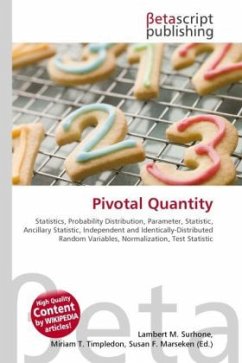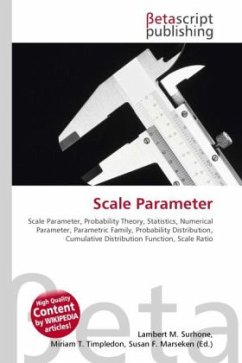High Quality Content by WIKIPEDIA articles! In statistics, a pivotal quantity or pivot is a function of observations and unobservable parameters whose probability distribution does not depend on unknown parameters. Note that a pivot quantity need not be a statistic the function and its value can depend on parameters of the model, but its distribution must not. If it is a statistic, then it is known as an ancillary statistic. More formally, given an independent and identically distributed sample X = (X_1,X_2,ldots,X_n) from a distribution with parameter , a function g is a pivotal quantity if the distribution of g(X, ) is independent of . Pivotal quantities are commonly used for normalization to allow data from different data sets to be compared. It is relatively easy to construct pivots for location and scale parameters: for the former we form differences so that location cancels, for the latter ratios so that scale cancels.
Bitte wählen Sie Ihr Anliegen aus.
Rechnungen
Retourenschein anfordern
Bestellstatus
Storno








